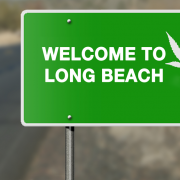Attorney General Jeff Sessions Takes On The Marijuana Industry
Attorney General Jeff Sessions Takes On The Marijuana Industry
On January 4, 2018, U.S. Attorney General Jeff Sessions announced the revocation of what is known in the cannabis industry as the “Cole Memo”.
It is surprising that the Trump Administration known for its pro-business stance, allowed for such an anti-business decision to be made by Attorney General Jeff Sessions. Just in California alone with the change in law allowing both medical and recreational marijuana, the marijuana industry in California is expected to be a $3.7 billion market in 2018 and could rise to $5.1 billion in 2019 according to the cannabis industry research firm BDS Analytics.
Medical marijuana is now legal in 29 states plus the District Of Columbia and recreational marijuana is legal in 8 states plus the District Of Columbia. However, under Federal law marijuana is designated as a Schedule I controlled substance and therefore is illegal under Federal law.
The Cole Memo which came out of the Department Of Justice (“DOJ”) under the Obama administration in 2013, directed U.S. Attorneys to use discretion to prioritize certain types of violations in prosecuting cannabis operators, but, strictly speaking, it did not make operations in cannabis legal. The DOJ told its prosecutors that prosecuting medical marijuana cases in states where is has been legalized would no longer be a priority.
The Cole Memo included eight factors for prosecutors to look at in deciding whether to charge a medical marijuana business with violating the Federal law:
- Does the business allow minors to gain access to marijuana?
- Is revenue from the business funding criminal activities or gangs?
- Is the marijuana being diverted to other states?
- Is the legitimate medical marijuana business being used as a cover or pretext for the traffic of other drugs or other criminal enterprises?
- Are violence or firearms being used in the cultivation and distribution of marijuana?
- Does the business contribute to drugged driving or other adverse public health issues?
- Is marijuana being grown on public lands or in a way that jeopardizes the environment or public safety?
- Is marijuana being used on federal property?
Under Sessions’ new guidance, the Cole Memo is overridden and U.S. Attorneys now retain broad prosecutorial discretion as to whether to prosecute cannabis businesses under federal law even though the state that these businesses operate in have legalized some form of marijuana. Although the safe harbor guidelines are no longer in place at a national level, that does not mean that your local federal prosecutor will disregard their continued application in determining whether federal prosecution against a local marijuana business should be implemented. But this is no guarantee so it is essential that you have legal counsel to back you up.
What Should You Do?
Given the greater disparity in treatment between the Federal and California governments you need to protect yourself and your marijuana business from all challenges created by the Federal government. Be proactive and engage an experienced attorney-CPA in your area. Let the tax attorneys of the Law Offices Of Jeffrey B. Kahn, P.C. located in Orange County, Long Beach and other California locations protect you and maximize your net profits.







 Follow
Follow Follow
Follow